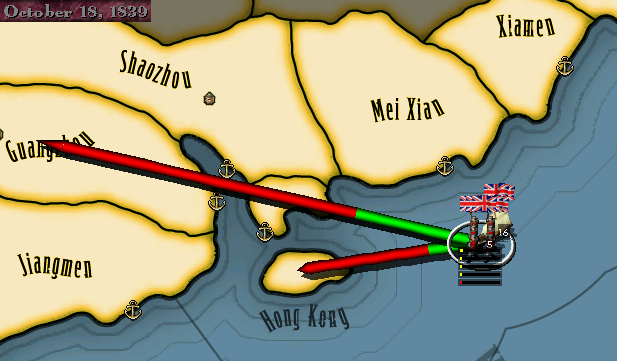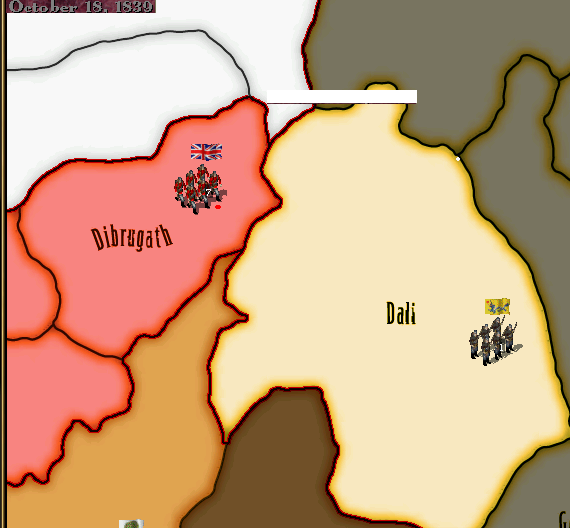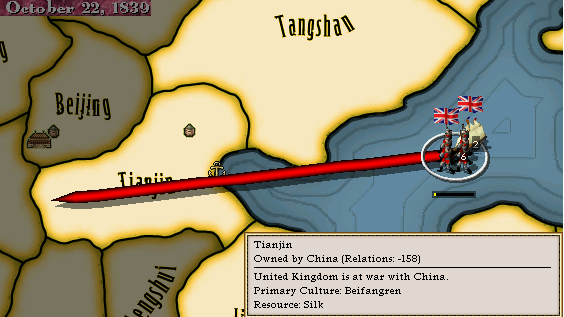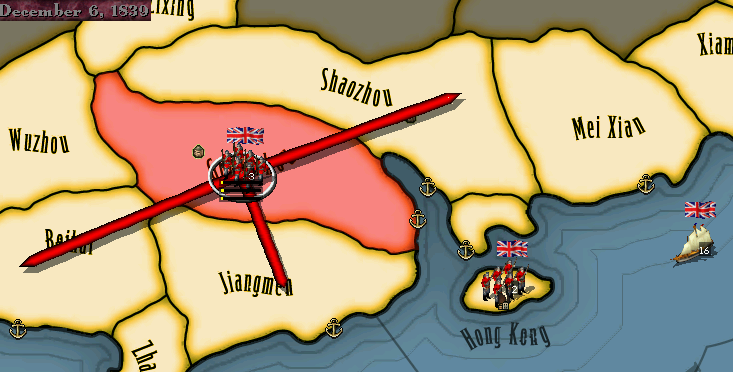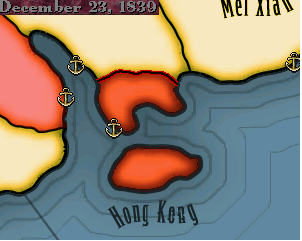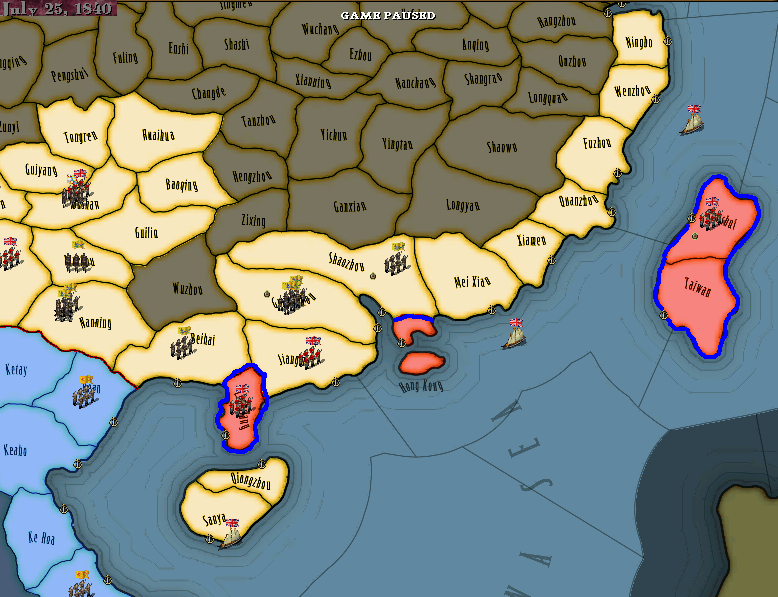It has come to our attention that Opium is now banned in China. This is unacceptable to us.
July 7th, 1839,
Dispatch from Governor General, India
China has demaned we turn over two British subjects to their kangaroo courts in Canton. We will not hand over British Subjects to another government. The Gunboat squadron has arrived and is cruising off the Port of Hong Kong.
July 8th 1839
Dispatch from Governor General, India
WAR! Acting on my authority I have began offensive operations against China. The Indian Armies are heading to the border at this moment. I request reinforcements of regulars from Britan.
Lord Auckland.
From Cabinet
To Singapore, Sydney, and Calcutta Stations
You are ordered to make sail with all possible haste to blockade the coasts of China. Once they you will destroy any Chinese flagged ships, support the army in pacifying coastal areas, you will also sail up any navigable rivers and seize any government property. You will also destroy any defensive positions the Chinese have built.
From Cabinet
To Secretary of State for War and the Colonies, Secretary at War
You will draw up plans for the embarkation of British regulars from England to be deployed to the Chinese Southern Coastal areas. All ready regular divisions including the newly formed Horse Guards Infantry corps are to be deployed with all due haste via Royal Navy Clipper transports to the area of operations.
Dispatch
From Commander, 1st Infantry Division( Senior Officer Present)
October 25th 1839
1st Infantry division along with 2nd, 3rd and 5th Infantry Divisions as well as the 1st Cavarly Division have successfully landed in Hong Kong and Guangzhou. We are in the process of securing these two vital ports. We landed to no Chinese resistance. A small flotilla of gunboats from the RN demolished some Chinese Forts guarding the entrances to the ports we landed it but they have appeared to be unmanned. All is Well and We are continuing the advance.
Dispatch
From Commander of Dehli Army and Calcutta Army
October 18th 1839
We have reached the border with China. At 10 00 AM this morning the first Sepoy and British regiments crossed the border. Later that day the entirety of the army all 70 000 men advanced into the hear of Dali province. We encountered light fighting from assorted Chinese militias but we brushed it aside with our modern guns and cannons. We are continuing the advance. However due to the adverse type of terrain it being very rocking and ill sutable for an army to cross through our advance will be slow going.
Dispatch
From Commander, 8th Infantry Division
October 22nd
We have reached the beaches of Tinjain. There was no enemy present we disembarked in good order and advanced smartly through the province. We are now within a week’s march of the Chinese Capital Beijing. We are moving as quickly as possible towards it in order to force the Manchus to surrender. I hope the landings in South have gone well.
Dispatch
From Commander, 1st Infantry Division. Commander of British Armies in Southern China
We have secured the vital port of Guangzhou on the mouth of the Pearl River the waterway between Guangzhou and Hong Kong. With this position in our hands the Admiral commanding, Station Calcutta has informed me that his ships can sail up that river and capture Chinese shipping. We have had reports the Manchu tax barges are somewhere up that river just think of the prize money. My other forces are finishing cleaning out Hong Kong and it will soon be under control. We are advancing on all fronts. Huzzah for Crown and Empire.
Dispatch
From Consul, Hong Kong
Excellent News the Chinese authorities have argeed to the Convention of Chuanbi in which they have turned Hong Kong over to us. However myself and the Commander of British Armies in Southern China felt that this was not enough and we are continuing the war. However Hong Kong is now British owned and it will make a fine port for the Navy and Trading vessels. It will become the jewel of our Asian possessions. It will remain British as long the Union Jack flys.

